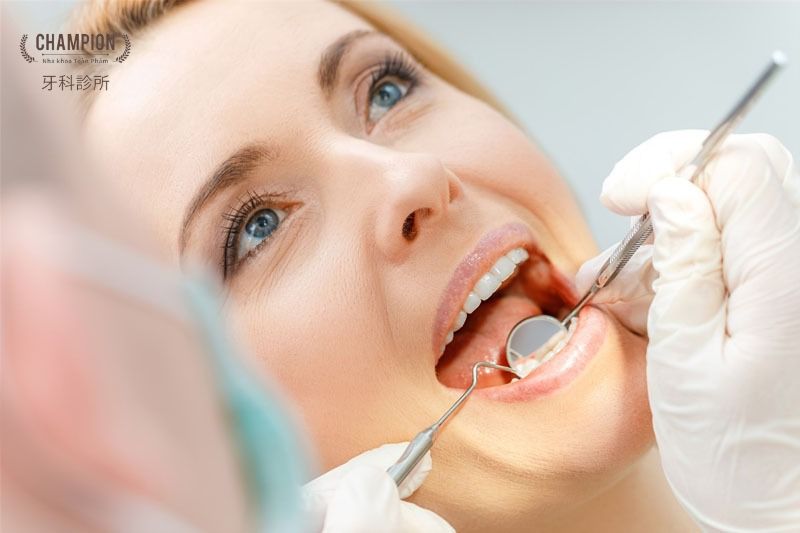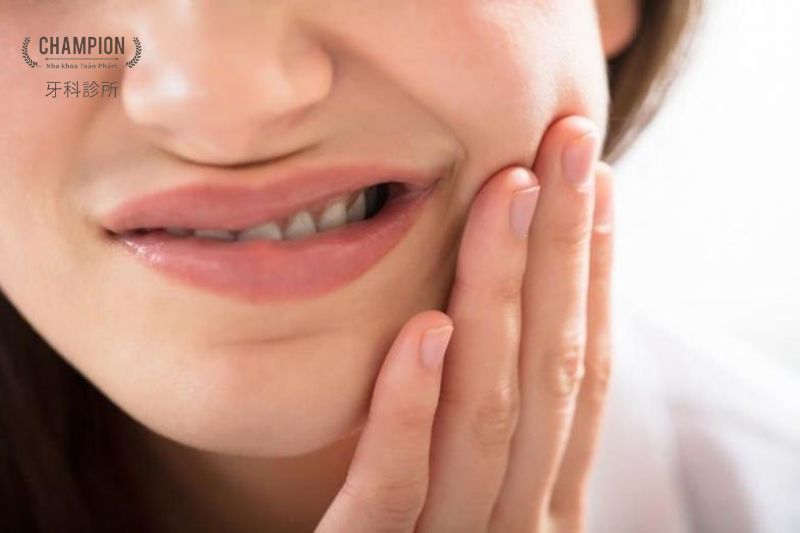Jaw teeth play a crucial role in the process of grinding food, aiding the body in optimal nutrient absorption. When jaw teeth become loose, it not only causes discomfort but can also lead to serious health issues. The following article provides detailed information about the condition of loose jaw teeth and appropriate treatment options.
Common Causes of Loose Jaw Teeth
Here are the most common reasons for loose and painful jaw teeth that you may encounter:
Trauma
Intense external forces, such as biting on something excessively hard or experiencing a strong impact during accidents, can lead to painful and loose jaw teeth.
Gingivitis
Gingivitis is a common factor contributing to loose jaw teeth. Gum inflammation causes the gums to recede from the teeth, creating an environment for bacteria to thrive and cause infection. If not detected and treated promptly, the infection can result in the loss of connective tissue and bone surrounding the teeth, leading to loose and painful teeth.
Tooth Decay
Dental caries penetrating into the dental pulp can cause inflammation and compression of the tooth root, resulting in pain and loose teeth. Tooth decay in adults can damage the dental pulp and surrounding tissues, providing conditions for tooth mobility.
Bruxism (Teeth Grinding)
Regular teeth grinding can damage tooth enamel and dentin, exerting pressure on the teeth and causing them to become loose.
Bone Resorption
Bone resorption reduces the height and width of the jawbone, applying pressure on the teeth and causing them to become loose. The gums may recede, creating conditions for loose and painful jaw teeth.

What to Do When Jaw Teeth Are Loose?
The approach to treatment depends on the severity of the condition and the underlying cause of the looseness. Here are common treatment options that a dentist may recommend:
External Force Impact Cases
If the teeth are still healthy and there is no underlying dental disease, a dentist may use specialized appliances to stabilize the loose teeth in the dental socket. This process helps the teeth regain stability and return to their original state without the need for extraction.
Gingivitis-Related Cases
For cases where loose teeth are caused by gingivitis, the dentist may perform teeth scaling to clean and remove plaque and bacteria. Simultaneously, the dentist may smooth the tooth surface to facilitate gum reattachment. In cases of severe gum disease, surgical procedures to remove infected gum tissue and damaged bone may be performed without tooth extraction.
Bone Resorption or Degeneration Cases
In situations involving bone loss, dentists may use bone grafts from other parts of the body or special bone grafting materials to repair the affected bone. This is a conservation-oriented treatment option that does not require tooth extraction.
Bruxism (Teeth Grinding) Cases
For patients with loose teeth due to teeth grinding, the dentist may adjust the bite by removing a small amount of tooth enamel, reducing pressure on the teeth, and reshaping the bite surface. This process helps restore the teeth to a normal state without the need for extraction.
In the treatment of loose jaw teeth, the primary focus is on preserving dental health. The decision to extract teeth is only made under the guidance of a reliable dentist, particularly in cases of severe, deep, infected looseness that cannot be addressed through other conservative measures.

>> See more: What is non-invasive porcelain veneer and how much does it cost?
Preventive Measures for Loose Jaw Teeth
To avoid this risk and maintain healthy jaw teeth, individuals should implement the following preventive measures:
- Rinse your mouth with saltwater daily to clean and provide antibacterial benefits. Additionally, brush your teeth properly, gently, at least twice a day.
- Use dental floss to remove leftover food particles between teeth, combined with mouthwash to maintain fresh breath.
- Have a diet rich in calcium and vitamin C to support strong and healthy teeth.
- Limit smoking and alcohol intake to protect oral health and ensure overall well-being.
- Schedule regular dental check-ups every six months to promptly detect any dental issues. Combine this with regular teeth cleanings and early treatment to prevent complications related to oral diseases.

Loose jaw teeth causing pain and discomfort is not uncommon. When this condition is identified, early and appropriate treatment is crucial. Therefore, it is advisable to visit reputable dental facilities for accurate diagnosis and treatment advice from a dentist to prevent and alleviate the complications associated with loose jaw teeth.
Vietnamese & English: (028) 5411-2295
中文: (028) 5411-2297 172 Nguyen Luong Bang, Tan Phu Ward, District 7, Ho Chi Minh City.
Fanpage: Champion Dental Clinic 牙科診所
Zalo: Champion Dental Clinic
Youtube: Champion Dental Clinic 牙科診所
 Champion Dental Clinic
Champion Dental Clinic



